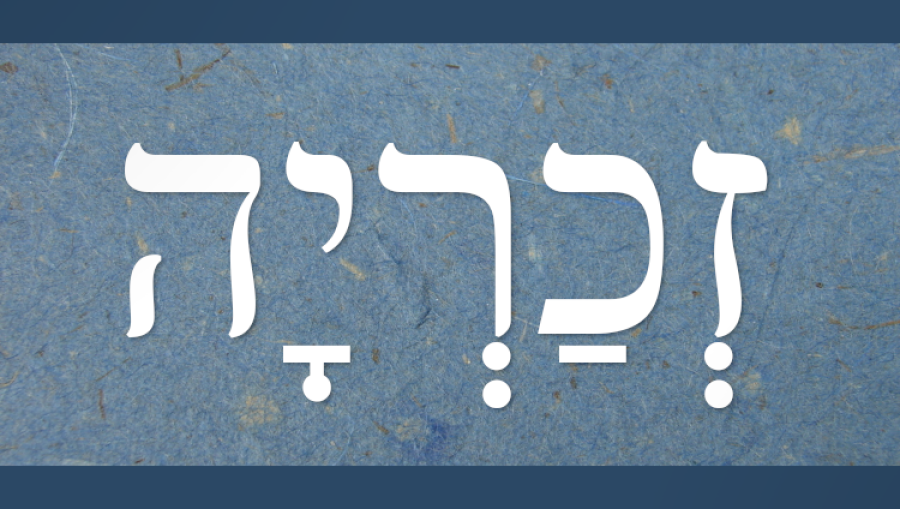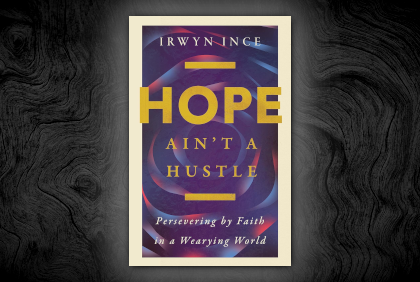Covenant Influences in Zechariah (Part 3)
Image

Read the series.
The Ominous Visions of Chapter Five
There is without any doubt an eeriness about the two visions of Zechariah 5. The flying scroll he sees first (Zech. 5:1-4) is thirty feet long (which is somewhat out of the ordinary), and fifteen feet wide (which definitely is).1 Unger comments,
Since these measurements are the exact size of the tabernacle in the wilderness, as may be computed from the boards used to build it (Exod. 26:15-25), the indication is that the judgments proceeding were in accordance with the holiness of the Lord’s habitation in the midst of Israel.2
Surely Zechariah, as a priest (cf. Neh. 12:16) would not have allowed this fact to pass him bye. From verses 3 and 4 we see that the scroll represents a “curse” against the malpractices of the people. God after the Exile is just as relentlessly against iniquity as He was before. But some think that the vision best suits a post-second advent context; a time when Christ reigns in justice with “a rod of iron” (Psa. 2:8-9; Rev 2:27).3
With verses 5 through 11 of Zechariah 5 we reach the peak of visionary oddities. The prophet beholds a “basket” or container within which was a woman.4 The woman is called “Wickedness,” and is imprisoned within the basket by a heavy lead disc being placed over its mouth (Zech. 5:7-8). If this isn’t strange enough, the woman in the basket is carried off to the land of Shinar (the location of Babylon) by two female angelic beings (unusual in itself) with wings like storks.5
The weirdness of the scene should not obscure its clear message; evil will be placed in the region of Babylon. (Zech. 5:11). The pressing question is when? The only answer we receive is, “when it is ready, the basket will be set there on its base.” That is to say, the lid will be taken away from the mouth and the woman will be released at a time appointed in the future.
Everyone would like more information than this meager sentence, but this is all we have and we should proceed humbly with the assumption that it is enough. What previous revelation has prepared us for is the association of Babylon and its vicinity with wickedness. One thinks about the tower of Babel (Gen. 11:2) and the depictions in Daniel 3 and 5 of its idolatry. But Zechariah is not looking back over his shoulder, but forward to a day when this embodied wickedness will be unleashed from the land of Shinar (modern Iraq). Is there later revelation that might help? The only thing I can think of is the repeated mention of “Babylon, that great city” in the last Book of the Bible (e.g. Rev. 14:8; 16:19; 18:2, 10, 21). There without a doubt, the city of Babylon is the center and source of wickedness in the world (Rev. 14:8; 18:3, 23-24).
Since we are on a journey through the unfolding of revelation I will not draw any conclusions from this just now. But these texts in the Apocalypse do tie off the frayed edge left in Zechariah 5.6 There are no others that do.7
God’s Zeal for Zion
When the Lord God looked upon the returnees in Israel in the sixth century before Christ, He did not see a nation that could hold its head high among the surrounding territories. From the time the Chaldeans came at the end of the seventh century till the Romans finally drew a curtain upon “Israel” after the Bar Kochba revolution early in the second century A. D., the people called the Jews were ruled over by outsiders. There is no way to reconcile the kind of language we see in Zechariah 8, or Isaiah 11 or 62:1-7, or Jeremiah 33:14-26, or Ezekiel 37:33-35 with anything we know about post-exilic Israel. We are left then with three alternatives; either the prophecies are null and void; or the prophecies have undergone radical transformation; or they are yet to be fulfilled as they were written. The first two options both demand that God’s oaths have suffered alteration. Only the third alternative preserves the original words, and it does so by means of belief in the unalterability of God’s covenants.
The zeal of God elicits the promise of God that Jerusalem will one day be known as “the City of Truth” (Zech. 8:3). If Zion really is the apple of God’s eye (Zech. 2:8), such an eventuality ought to be expected. Indeed, every attempt to eradicate the Jews from the historical map is doomed to failure. But this transformation of Jerusalem is set amid unusual circumstances. It involves another regathering of the people from the east and the west (Zech. 8:7). Afterwards there will be “truth and righteousness” (Zech. 8:8), when the remnant will possess the land (Zech. 8:11f.). But the biggest promise, and one that punctuates the entire book of Zechariah (e.g. Zech. 1:3, 16; 2:10; 8:9; 14:4, 9), is that of Yahweh’s own coming to dwell (shakan) in their midst permanently (Zech. 8:3). Isaiah had said that the Branch would be “a banner” whom the Gentiles would turn to (Isa. 11:10). The same kind of language occurs in Zechariah 8:20-23, although in more detail. This kind of detail is not to be palmed away by an eschatology which requires radical rewording and reapplication so that room can be found for it within its system. This favoring of Zion has a covenantal basis (Zech. 9:11), although there is some debate about which covenant is in view in that text. Merrill, along with the majority of scholars, thinks that it refers to the blood of the Mosaic covenant in Exodus 24:1-8.8 To this Baron agrees, but he looks beyond it to the blood of the Abrahamic covenant and to the blood of the New covenant.9
For my part, I cannot see how the Mosaic covenant can lead to such a restoration, especially since the redemption is brought about via the New covenant.10 But if we assume an organic association of Mt. Sinai with Mt. Moriah it is quite easy to see that although Israel broke the Mosaic covenant, Yahweh need not walk away from His pledge of restoration in that covenant because it is underscored in the Abrahamic covenant. But then we must consider the prophecy of Zechariah 9:9 about “Your (i.e. Jerusalem’s) King” coming in peace, symbolized by His riding a donkey and not a war horse,11 and we see definite New covenant overtones.12 What follows in Zechariah 9:11-12 suggests the fulfillment of God’s covenants through the New covenant. The time of vengeance and renewal pictured in Zechariah 9:14-10:1, 6-8 calls to mind many similar passages which envisage a New covenant setting (e.g. Hos. 6:1-3; Isa. 24 – 26; 61; 63).
Notes
1 See Klein, Zechariah, 170.
2 Merrill F. Unger, Zechariah: Prophet of Messiah’s Glory (Grand Rapids: Zondervan, 1970), 85.
3 Ibid, 88-90.
4 The basket is called an “ephah”, which was the largest measure used in ancient Israel. This then probably symbolized the largest measure of evil.
5 It is well to note that the woman and the basket are readily explained figures, but what about the stork-winged women? Why include them, unless of course they were real angelic beings?
6 Tony Garland reminds me of Jeremiah 50:20ff., where, in the context of no accuser being able to find iniquity against Israel, the prophet “underscores the actively evil role of (a seemingly future) Babylon.
7 Of course, one might interpret the designation of “Shinar” as notional or general; the main thing being the removal of sin from Israel. Thus, C. F. Keil, The Minor Prophets, 2.285.
8 Eugene H. Merrill, Haggai, Zechariah, Malachi: An Exegetical Commentary, 259. This view is also held by Barker, Unger, and Klein. See Klein, 277.
9 David Baron, The Visions and Prophecies of Zechariah, 318-319.
10 Cf. W. J. Dumbrell, Covenant and Creation, 203.
11 George L. Klein, Zechariah, 274.
12 Of course, from an OT vantage point, it was not anticipated that the blood of the New covenant was to be the blood of the King.
Paul Henebury Bio
Paul Martin Henebury is a native of Manchester, England and a graduate of London Theological Seminary and Tyndale Theological Seminary (MDiv, PhD). He has been a Church-planter, pastor and a professor of Systematic Theology and Apologetics. He was also editor of the Conservative Theological Journal (suggesting its new name, Journal of Dispensational Theology, prior to leaving that post). He is now the President of Telos School of Theology.
- 26 views
Although I am a little hesitant to say so, since I seem to make Paul nervous when I indicate that I agree with him. Still, I find this article helpful in its analysis of Zechariah.
G. N. Barkman
Paul,
Thanks for the reminder that God’s words cannot be altered, but must be fulfilled as given. Zechariah, like so many of the OT prophets, highlighted the greater exodus to come in which Israel would be permanently restored to the land and to fellowship with the Lord. Truly, if Israel’s current state of being broken off means salvation for the Gentiles, this future restoration will bring even greater blessings to the world!
Paul, excellent as always. Not surprisingly, I agree with everything in this article. Good job!
"The Midrash Detective"
I appreciate your encouragements gents, especially Greg. ;-)
Dr. Paul Henebury
I am Founder of Telos Ministries, and Senior Pastor at Agape Bible Church in N. Ca.





Discussion